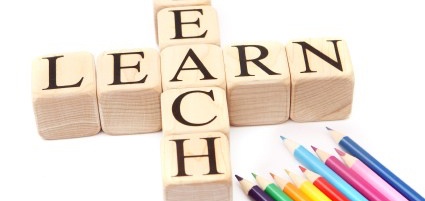Celebrating teachers comes under scrutiny particularly in Nigeria. The rise of private schools has been cited repeatedly as a testament to how low education has descended – yes, teachers influence the quality of education. People tend to forget the most criticized profession is faced with various challenges - from parent’s insistence to societal demands, the ever-changing culture, and technology, teachers are constantly evolving ways to improve on their jobs. Today’s student is smarter, born tech-savvy, has the ability to cope with more, is individualistic and curious. It is certainly a different terrain for teachers in this era. The Teachers aptitude should encompass the knowledge, attitudes, behavior and skills needed to perform their tasks today. Developing logical reasoning and critical thinking is an essential need, the effect of this teaching should be evident in the classroom, school and the wider community as our students grow into the society.
The process of achieving this has always been the challenge. However, teachers must strive to achieve this in the lives of the students as a group and as individuals- tough task? The product is as good as the process! A saying, teachers have come to disregard simply because it is time-consuming. Time is part of the process, in fact, the process is a passage of time and students should be made to appreciate the activities that occur in that period. One of the ways to drive home process is to emphasize efforts. Yes, we all want to teach intelligent children but how do we appraise the work they turn out?
The emphasis on result has been the bane of our society hence the saying ‘the end justifies the means’. this has given rise to mediocre minds with no regards to processor efforts. Research has shown there exists a remarkable difference in the development and values of children who are trained with an emphasis on efforts and those with training with emphasis on results. As teachers, we need to develop an appraisal system that focuses on efforts. children who are praised on their natural intelligence choose future tasks that will make them look smart, do not enjoy tasks as much, perform worse in future tasks, ask questions about how others have fared, understandably because they assume the pressure to keep up with the standards they have set for themselves. In contrast, when students are praised based on the efforts they’ve put into tasks: they choose tasks that make them learn more, they perform better in future tasks, they enjoy the tasks more and ask questions for more feedback because they learn the value of resilience.
If we are to graduate human capital fit for the workspace demands of the 21st century, we need to strongly rethink the value we place on efforts and process. No better place than the classroom to begin.












Comments